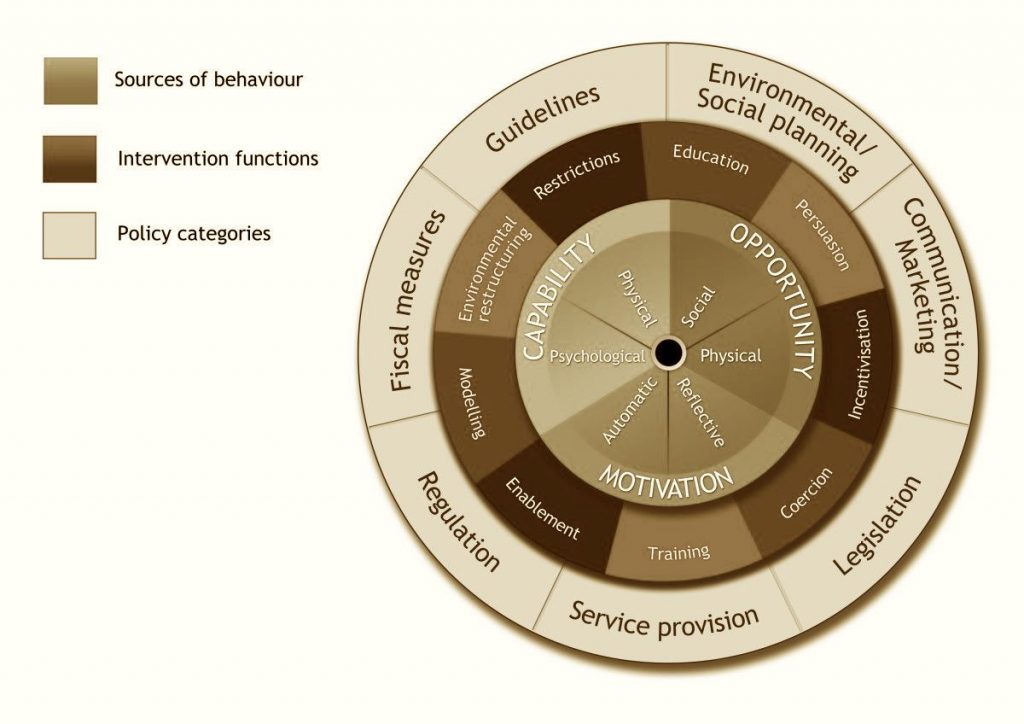The Secret to Successful Behavioural Change

Behaviour change is highly relevant for your health and performance, as more than 50% of illnesses are caused by human behaviour. If you find yourself struggling with change, don’t worry, you are not the only one. But why is it so difficult to change your ways? Recent research has some explanations.
The process of changing one’s behaviours is much more complex than people originally thought. One of the key problems seems to be overestimating the significance of education and evidence in behaviour change. Often, people don’t change their behaviour, even though they know they should and why they should.
Behavioural change is an iterative process
Polly Ryan is a medical scientist who has specialised in health behaviour. She has concluded that behavioural change is a dynamic and iterative process, where desire and motivation are the prerequisites to change, self-reflection facilitates progress, and social influences sway interest and support change. Once you realise this complexity of behaviour change, it’s easier to understand why also the solutions must be multifaceted.
Key drivers of behavioural change
Another interesting theory that can help in understanding this complex nature of change is the Behaviour Change Wheel, developed by Susan Michie, Maartje van Stralen and Robert West. Their starting thought or question was finding out what conditions internal in a person but also what external conditions in one’s social and physical environment need to be in place for a behaviour target to be achieved. They found that the three key drivers of behaviour change are motivation and capability, which are internal conditions, and opportunity, which is an external condition. These are all interlinked and can influence each other.

They also identified a number of different interventions, which can be used to change one’s behaviour. These included education, incentivisation, training, enablement, environmental restructuring, persuasion, coercion, restriction, and modelling. The key issue to highlight in these interventions is that some of them work for improving one’s capability, others focus on increasing motivation, while others are suitable for modifying external opportunities.
At some parts of the process you may need support in boosting your motivation and perhaps education may help to achieve that. However, along the way, you may also find that the external environment needs to the modified in order to maintain the behaviour. Finally, you may realise that you need some further training to improve your capability, as you have plateaued in your development and start to lose motivation. Hintsa’s performance coaching services can help you in all of these stages, as they offer a combination of support, education and personal coaching.
Successful change requires grit and control
Once you have made changes, it can be hard to maintain them. Plenty of research has been done also on sustaining behaviour change. Researchers Angela Duckworth and James Gross suggest self-control and grit being the key ingredients of success. As you have a long-term goal in mind, self-control is what you need daily to choose actions, which take you towards that goal, rather than going for short-term rewards that don’t take you in the right direction. What this means is that it is important for you to prioritise your goals to make your daily decision making easier.
Grit is a somewhat similar, as it refers to the tenacious pursuit of long-term goals even in the face of setbacks over a long period of time. The key point here is that as you keep pursuing your goals, you will most likely also have to endure setbacks and overcome obstacles at some stage. Don’t be surprised as they come, but rather be prepared with a ready strategy in mind.
Once you understand these theories behind human behaviour, it becomes easier to make changes. If you need more practical tips for making healthy change happen, subscribe to our newsletter, as we have several blog posts about the topic coming up!

Read previous
Language Matters – How words affect performance

Contact
